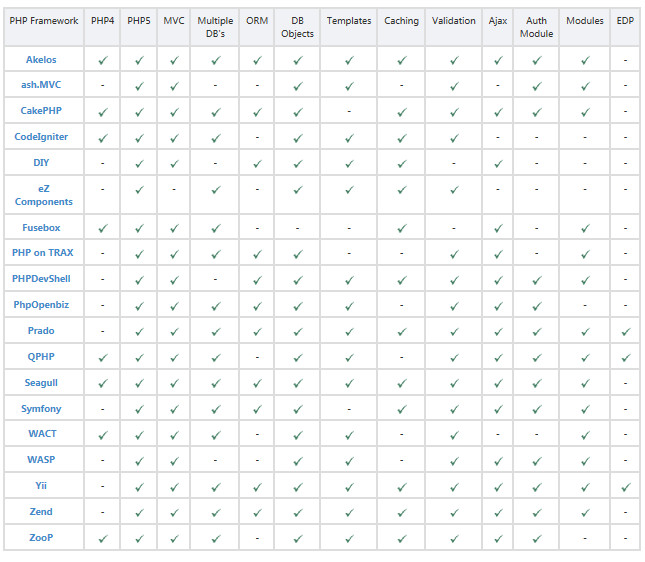Home >Backend Development >PHP Tutorial >Comparison table of commonly used PHP framework functions
Comparison table of commonly used PHP framework functions
- 伊谢尔伦Original
- 2016-11-25 11:33:221039browse
Since I came into contact with PHP development, I have used many frameworks. Although I have not studied each framework in depth, I have some understanding of the functions of each PHP framework used. At this point, I have compiled some commonly used PHP framework functions into a table. I hope it can be a reference for everyone when choosing a PHP framework.
MVC: Indicates whether the framework comes with built-in support for Model-View-Controller settings;
Multiple DB's: Indicates whether the framework supports multiple databases without making any changes;
ORM: Indicates whether the framework supports object record mapping;
DB Objects: Indicates whether the framework includes other database objects, such as TableGateWay;
Templates: Indicates whether the framework has a built-in template engine;
Caching: Indicates whether the framework contains a cache object or other means of caching;
Validation: Indicates whether the framework has a built-in validation or filtering component;
Ajax: Indicates whether the framework has built-in support for Ajax;
Auth Module: Indicates whether the framework has built-in modules that handle user authentication;
Modules: Indicates whether the framework has other Modules, such as RSS feed parser, PDF module, etc.;
EDP: event-driven programming.


